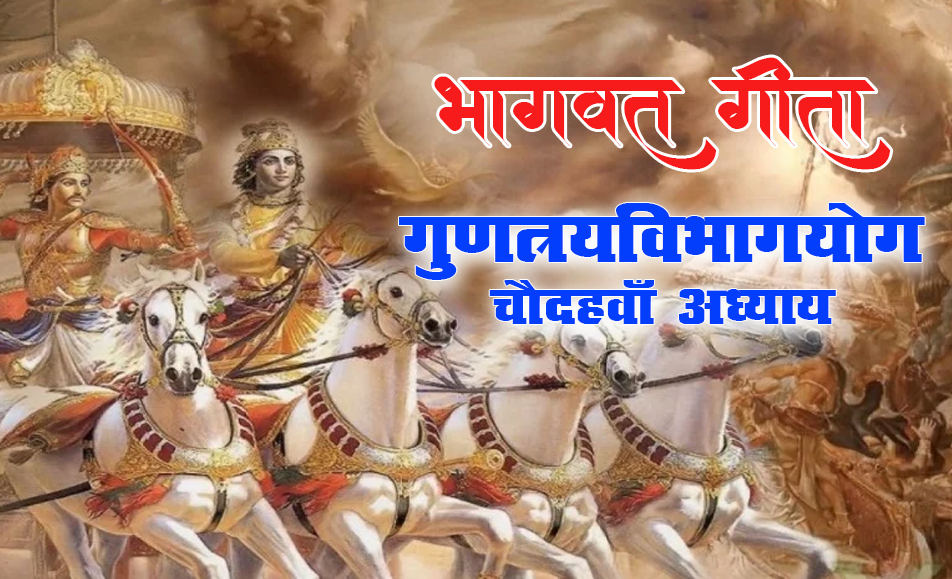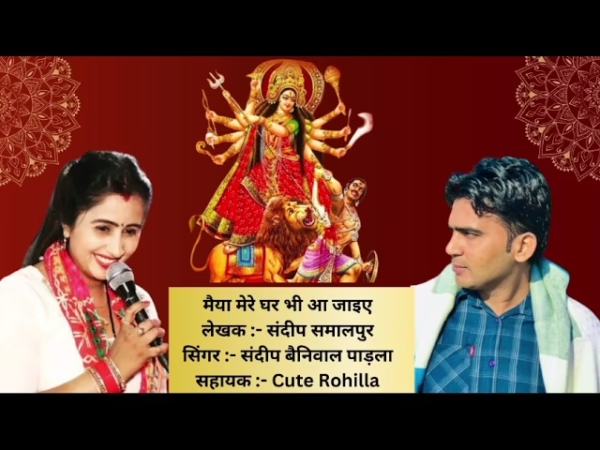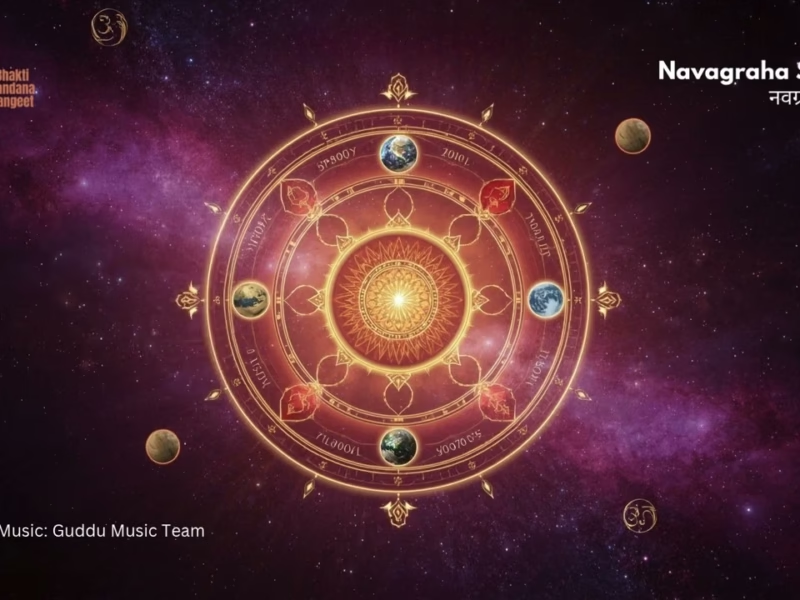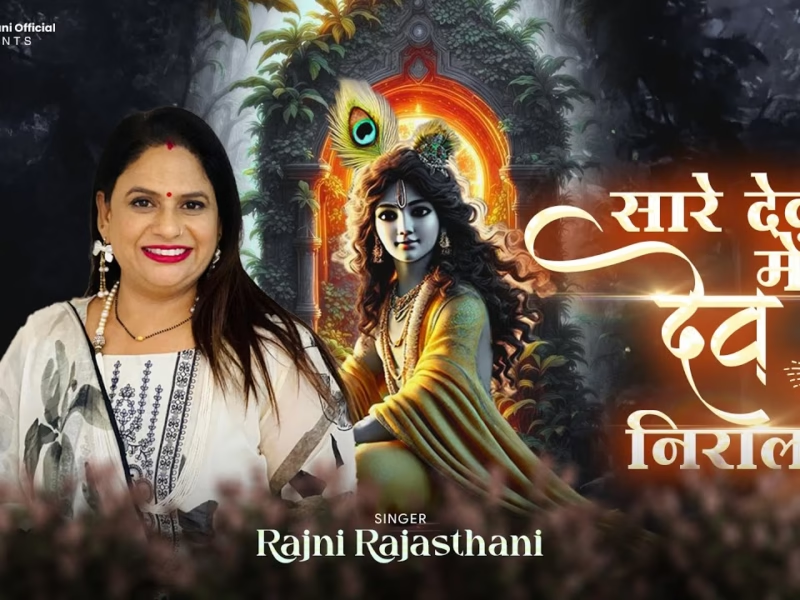अथ चतुर्दशोऽध्यायः- गुणत्रयविभागयोग
ॐ तत्सदिति श्रीमद्भगवद्गीतासूपनिषत्सु ब्रह्मविद्यायांयोगशास्त्रे
श्रीकृष्णार्जुनसंवादे गुणत्रयविभागयोगो नामचतुर्दशोऽध्यायः॥14॥
श्रीकृष्णार्जुनसंवादे गुणत्रयविभागयोगो नामचतुर्दशोऽध्यायः॥14॥
(ज्ञान की महिमा और प्रकृति-पुरुष से जगत् की उत्पत्ति)
Chapter 14 – The Bhagawad Gita
श्रीभगवानुवाच- परं भूयः प्रवक्ष्यामि ज्ञानानं मानमुत्तमम् ।यज्ज्ञात्वा मुनयः सर्वे परां सिद्धिमितो गताः ॥
The Divine Lord said: I shall once again explain to you the supreme wisdom, the best of all knowledge; by knowing which, all the great saints attained the highest perfection.
इदं ज्ञानमुपाश्रित्य मम साधर्म्यमागताः ।सर्गेऽपि नोपजायन्ते प्रलये न व्यथन्ति च ॥
Those who take refuge in this wisdom will be united with me. They will not be reborn at the time of creation nor destroyed at the time of dissolution.
मम योनिर्महद्ब्रह्म तस्मिन्गर्भं दधाम्यहम् । सम्भवः सर्वभूतानां ततो भवति भारत ॥
The total material substance, prakṛiti, is the womb. I impregnate it with the individual souls, and thus all living beings are born.
सर्वयोनिषु कौन्तेय मूर्तयः सम्भवन्ति याः । तासां ब्रह्म महद्योनिरहं बीजप्रदः पिता ॥
O son of Kunti, for all species of life that are produced, the material nature is the womb, and I am the seed-giving Father.
(सत्, रज, तम- तीनों गुणों का विषय) सत्त्वं रजस्तम इति गुणाः प्रकृतिसम्भवाः । निबध्नन्ति महाबाहो देहे देहिनमव्ययम् ॥
O mighty-armed Arjun, the material energy consists of three guṇas (modes)—sattva (goodness), rajas (passion), and tamas (ignorance). These modes bind the eternal soul to the perishable body.
तत्र सत्त्वं निर्मलत्वात्प्रकाशकमनामयम् ।सुखसङ्गेन बध्नाति ज्ञानसङ्गेन चानघ ॥
Amongst these, sattva guṇa, the mode of goodness, being purer than the others, is illuminating and full of well-being. O sinless one, it binds the soul by creating attachment for a sense of happiness and knowledge.
रजो रागात्मकं विद्धि तृष्णासङ्गसमुद्भवम् । तन्निबध्नाति कौन्तेय कर्मसङ्गेन देहिनम् ॥
O Arjun, rajo guṇa is of the nature of passion. It arises from worldly desires and affections, and binds the soul through attachment to fruitive actions.
तमस्त्वज्ञानजं विद्धि मोहनं सर्वदेहिनाम् । प्रमादालस्यनिद्राभिस्तन्निबध्नाति भारत ॥
O Arjun, tamo guṇa, which is born of ignorance, is the cause of illusion for the embodied souls. It deludes all living beings through negligence, laziness, and sleep.
सत्त्वं सुखे सञ्जयति रजः कर्मणि भारत । ज्ञानमावृत्य तु तमः प्रमादे सञ्जयत्युत ॥
Sattva binds one to material happiness; rajas conditions the soul toward actions; and tamasclouds wisdom and binds one to delusion.
रजस्तमश्चाभिभूय सत्त्वं भवति भारत ।रजः सत्त्वं तमश्चैव तमः सत्त्वं रजस्तथा ॥
Sometimes goodness (sattva) prevails over passion (rajas) and ignorance (tamas), O scion of Bharat. Sometimes passion (rajas) dominates goodness (sattva) and ignorance (tamas), and at other times ignorance (tamas) overcomes goodness (sattva) and passion (rajas).
सर्वद्वारेषु देहेऽस्मिन्प्रकाश उपजायते । ज्ञानं यदा तदा विद्याद्विवृद्धं सत्त्वमित्युत ॥
When all the gates of the body are illumined by knowledge, know it to be a manifestation of the mode of goodness. When the mode of passion predominates,
लोभः प्रवृत्तिरारम्भः कर्मणामशमः स्पृहा । रजस्येतानि जायन्ते विवृद्धे भरतर्षभ ॥
O Arjun, the symptoms of greed, exertion for worldly gain, restlessness, and craving develop.
अप्रकाशोऽप्रवृत्तिश्च प्रमादो मोह एव च । तमस्येतानि जायन्ते विवृद्धे कुरुनन्दन ॥
O Arjun, nescience, inertia, negligence, and delusion—these are the dominant signs of the mode of ignorance.
यदा सत्त्वे प्रवृद्धे तु प्रलयं याति देहभृत् ।तदोत्तमविदां लोकानमलान्प्रतिपद्यते ॥
Those who die with predominance of sattva reach the pure abodes (which are free from rajasand tamas) of the learned.
रजसि प्रलयं गत्वा कर्मसङ्गिषु जायते ।तथा प्रलीनस्तमसि मूढयोनिषु जायते ॥
Those who die with prevalence of the mode of passion are born among people driven by work, while those dying in the mode of ignorance take birth in the animal kingdom.
कर्मणः सुकृतस्याहुः सात्त्विकं निर्मलं फलम् ।रजसस्तु फलं दुःखमज्ञानं तमसः फलम् ॥
It is said the fruit of actions performed in the mode of goodness bestow pure results. Actions done in the mode of passion result in pain, while those performed in the mode of ignorance result in darkness.
सत्त्वात्सञ्जायते ज्ञानं रजसो लोभ एव च ।प्रमादमोहौ तमसो भवतोऽज्ञानमेव च ॥
From the mode of goodness arises knowledge, from the mode of passion arises greed, and from the mode of ignorance arise negligence and delusion.
ऊर्ध्वं गच्छन्ति सत्त्वस्था मध्ये तिष्ठन्ति राजसाः । जघन्यगुणवृत्तिस्था अधो गच्छन्ति तामसाः ॥
Those situated in the mode of goodness rise upward; those in the mode of passion stay in the middle; and those in the mode of ignorance go downward.
(भगवत्प्राप्ति का उपाय और गुणातीत पुरुष के लक्षण) नान्यं गुणेभ्यः कर्तारं यदा द्रष्टानुपश्यति । गुणेभ्यश्च परं वेत्ति मद्भावं सोऽधिगच्छति ॥
When wise persons see that in all works there are no agents of action other than the three guṇas, and they know me to be transcendental to these guṇas, they attain my divine nature.
गुणानेतानतीत्य त्रीन्देही देहसमुद्भवान् । जन्ममृत्युजरादुःखैर्विमुक्तोऽमृतमश्नुते ॥
By transcending the three modes of material nature associated with the body, one becomes free from birth, death, disease, old age, and misery, and attains immortality.
अर्जुन उवाच-कैर्लिङ्गैस्त्रीन्गुणानेतानतीतो भवति प्रभो । किमाचारः कथं चैतांस्त्रीन्गुणानतिवर्तते ॥
Arjun inquired: What are the characteristics of those who have gone beyond the three guṇas, O Lord? How do they act? How do they go beyond the bondage of the guṇas?
श्रीभगवानुवाच-प्रकाशं च प्रवृत्तिं च मोहमेव च पाण्डव । न द्वेष्टि सम्प्रवृत्तानि न निवृत्तानि काङ्क्षति ॥
The Supreme Divine Personality said: O Arjun, The persons who are transcendental to the three guṇas neither hate illumination (which is born of sattva), nor activity (which is born of rajas), nor even delusion (which is born of tamas), when these are abundantly present, nor do they long for them when they are absent.
उदासीनवदासीनो गुणैर्यो न विचाल्यते ।गुणा वर्तन्त इत्येव योऽवतिष्ठति नेङ्गते ॥
They remain neutral to the modes of nature and are not disturbed by them. Knowing it is only the guṇas that act, they stay established in the self, without wavering.
समदुःखसुखः स्वस्थः समलोष्टाश्मकाञ्चनः । तुल्यप्रियाप्रियो धीरस्तुल्यनिन्दात्मसंस्तुतिः ॥
Those who are alike in happiness and distress; who are established in the self; who look upon a clod, a stone, and a piece of gold as of equal value; who remain the same amidst pleasant and unpleasant events; who are intelligent; who accept both blame and praise with equanimity;
मानापमानयोस्तुल्यस्तुल्यो मित्रारिपक्षयोः । सर्वारम्भपरित्यागी गुणातीतः सा उच्यते ॥
who remain the same in honor and dishonor; who treat both friend and foe alike; and who have abandoned all enterprises – they are said to have risen above the three guṇas.
मां च योऽव्यभिचारेण भक्तियोगेन सेवते । स गुणान्समतीत्येतान्ब्रह्मभूयाय कल्पते ॥
Those who serve me with unalloyed devotion rise above the three modes of material nature and come to the level of Brahman.
ब्रह्मणो हि प्रतिष्ठाहममृतस्याव्ययस्य च ।शाश्वतस्य च धर्मस्य सुखस्यैकान्तिकस्य च ॥
I am the basis of the formless Brahman, the immortal and imperishable, of eternal dharma, and of unending divine bliss.











